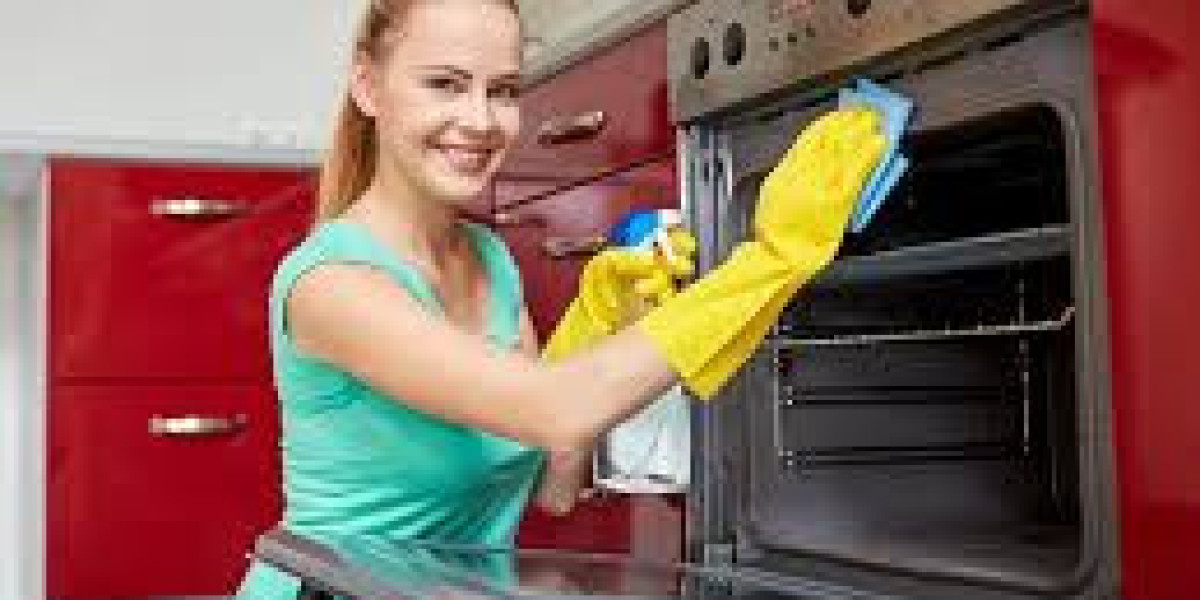What Are the Risks of Not Using a Commercial Kitchen Cleaning Company?
Running a restaurant or food service business is no small feat. From crafting the perfect menu to ensuring top-notch customer service, every detail matters. However, one critical aspect often overlooked is commercial kitchen sanitation. Failing to hire a professional commercial kitchen cleaning company can lead to severe consequences, from health hazards in commercial kitchens to costly regulatory fines. This article explores the dangers of not using professional cleaning services, offering insights into why prioritizing kitchen hygiene is essential for your business’s success.
1. Health Hazards and Food Safety Violations
An unhygienic kitchen environment poses significant public health risks. Without regular professional cleaning, food preparation surfaces, cooking equipment, and kitchen exhaust systems can become breeding grounds for bacteria like Salmonella and E. coli. These pathogens can lead to foodborne illness outbreaks, putting customers and employees at risk. According to the CDC, foodborne illnesses cause approximately 48 million cases annually in the U.S., with restaurants often at the center of outbreaks.
- Cross-contamination in kitchens: Improperly cleaned surfaces can transfer harmful bacteria to food, increasing the risk of customer health complaints.
- Food safety compliance issues: Failing to meet food safety regulations set by the FDA or local health inspectors can result in violations, fines, or even temporary closures.
- Reputation damage: A single health-related incident can tarnish your restaurant’s reputation, driving customers away.
Hiring a commercial cleaning service ensures that sanitizing solutions and cleaning protocols are applied consistently, reducing the risk of bacterial contamination and ensuring compliance with public health standards.
2. Fire Hazards from Grease Buildup
Grease buildup dangers are among the most severe risks of inadequate kitchen sanitation. Grease accumulates in kitchen exhaust systems, ventilation hoods, and grease traps, creating a highly flammable environment. The National Fire Protection Association (NFPA) reports that over 11,000 restaurant fires occur annually, with grease fires being a leading cause.
- Uncleaned exhaust systems: Grease-laden ventilation hoods can ignite, leading to devastating fires that endanger lives and property.
- Costly repairs: Fire damage can result in expensive repairs and downtime, disrupting commercial kitchen operations.
- Insurance complications: Failure to maintain a clean kitchen may lead to denied insurance claims, as insurers often require proof of regular maintenance.
A professional cleaning company specializes in deep cleaning services, ensuring that grease buildup is thoroughly removed, mitigating fire hazards in restaurant kitchens.
3. Pest Infestations and Unsanitary Conditions
Unsanitary kitchen conditions attract pests like rodents, cockroaches, and flies, which thrive in environments with food debris and grease. Pest infestations in restaurants not only violate food safety regulations but also create a negative impression among customers.
- Pest control challenges: DIY cleaning often misses hidden areas like kitchen flooring crevices or behind cooking equipment, allowing pests to proliferate.
- Health inspection failures: Health inspectors may issue citations or shut down your kitchen if pests are detected.
- Customer trust erosion: Visible pests can lead to negative reviews, harming your restaurant management efforts.
Commercial cleaning services employ pest control measures and thorough cleaning techniques to eliminate food sources that attract pests, maintaining a hygienic kitchen environment.
4. Regulatory Fines and Legal Consequences
Non-compliance with food safety regulations can lead to hefty regulatory fines and legal repercussions. Health inspectors evaluate commercial kitchen maintenance based on strict guidelines, and failure to meet these standards can result in penalties.
- Costly fines: Violations can cost thousands of dollars, with some states imposing fines up to $10,000 per infraction.
- Business closure: Repeated violations may lead to temporary or permanent closure, severely impacting business operational risks.
- Legal liabilities: If customers fall ill due to food safety violations, your business could face lawsuits, further escalating costs.
By partnering with a commercial cleaning company, you ensure adherence to regulatory compliance frameworks, avoiding food safety compliance issues and protecting your business.
5. Equipment Damage and Reduced Efficiency
Neglecting commercial kitchen maintenance can lead to equipment damage from poor maintenance. Grease, grime, and food debris can clog grease traps, corrode cooking equipment, and reduce the efficiency of ventilation hoods.
- Costly repairs or replacements: Damaged equipment requires expensive repairs or replacements, straining your budget.
- Operational downtime: Malfunctioning equipment disrupts kitchen facility maintenance, leading to delays and lost revenue.
- Energy inefficiency: Dirty ventilation systems force equipment to work harder, increasing energy costs.
Professional cleaners use specialized techniques to maintain commercial kitchen equipment, extending its lifespan and ensuring optimal performance.
6. Odor Issues and Poor Customer Experience
Odor issues in commercial kitchens can arise from grease, food debris, and mold growth. These unpleasant smells can waft into dining areas, creating a negative customer experience.
- Customer complaints: Lingering odors can lead to negative reviews, deterring potential customers.
- Employee discomfort: An unhygienic kitchen environment can affect staff morale and productivity.
- Brand damage: A reputation for poor cleanliness can harm your standing in the food and beverage industry.
Commercial cleaning services address odor issues through thorough cleaning and proper ventilation maintenance, enhancing the overall restaurant hygiene experience.
Why Hire a Professional Commercial Kitchen Cleaning Company?
The perils of skipping professional cleaning far outweigh the costs of hiring a commercial cleaning service. These experts bring specialized knowledge, equipment, and cleaning protocols to ensure your kitchen meets public health standards and operates efficiently. Here’s why investing in professional cleaning benefits your business:
- Compliance with regulations: Avoid regulatory fines and ensure food safety compliance.
- Enhanced safety: Reduce fire hazards and employee safety hazards through proper cleaning.
- Improved reputation: Maintain a clean, odor-free kitchen to boost customer trust and loyalty.
- Cost savings: Prevent costly repairs and downtime by maintaining commercial kitchen equipment.
- Peace of mind: Focus on restaurant management while professionals handle kitchen hygiene.
How to Choose the Right Commercial Kitchen Cleaning Service
When selecting a commercial cleaning service, consider the following:
- Experience and expertise: Choose a company with a proven track record in commercial kitchen sanitation.
- Certifications: Ensure they comply with food safety regulations and industry standards.
- Customized cleaning plans: Look for services tailored to your kitchen’s needs, including grease trap cleaning and exhaust system maintenance.
- Customer reviews: Check testimonials to verify reliability and quality.
Conclusion
The risks of not using a commercial kitchen cleaning company are too significant to ignore. From health hazards and fire risks to regulatory fines and equipment damage, neglecting professional cleaning can jeopardize your business’s success. By investing in a commercial cleaning service, you ensure a hygienic kitchen environment, comply with food safety regulations, and protect your reputation in the hospitality sector. Don’t let unsanitary kitchen conditions undermine your hard work—partner with professionals to keep your kitchen sparkling clean and your business thriving.







